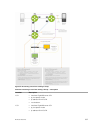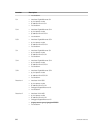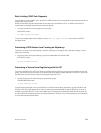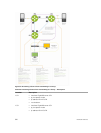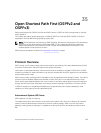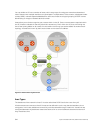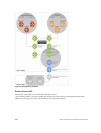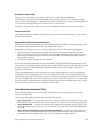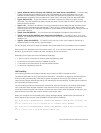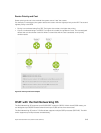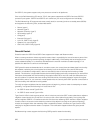
35
Open Shortest Path First (OSPFv2 and
OSPFv3)
Open shortest path first (OSPFv2 for IPv4) and OSPF version 3 (OSPF for IPv6) are supported on the MXL
switch platform.
This chapter provides a general description of OSPFv2 (OSPF for IPv4) and OSPFv3 (OSPF for IPv6) as
supported in the Dell Networking operating system (OS).
NOTE: The fundamental mechanisms of OSPF (flooding, DR election, area support, SPF calculations,
and so on) are the same between OSPFv2 and OSPFv3. This chapter identifies and clarifies the
differences between the two versions of OSPF. Except where identified, the information in this
chapter applies to both protocol versions.
OSPF protocol standards are listed in the Standards Compliance chapter.
Protocol Overview
OSPF routing is a link-state routing protocol that calls for the sending of link-state advertisements (LSAs)
to all other routers within the same autonomous system (AS) areas.
Information on attached interfaces, metrics used, and other variables is included in OSPF LSAs. As OSPF
routers accumulate link-state information, they use the shortest path first (SPF) algorithm to calculate the
shortest path to each node.
OSPF routers initially exchange HELLO messages to set up adjacencies with neighbor routers. The HELLO
process is used to establish adjacencies between routers of the AS. It is not required that every router
within the AS areas establish adjacencies. If two routers on the same subnet agree to become neighbors
through the HELLO process, they begin to exchange network topology information in the form of LSAs.
In OSPFv2 neighbors on broadcast and NBMA links are identified by their interface addresses, while
neighbors on other types of links are identified by RID.
Autonomous System (AS) Areas
OSPF operates in a type of hierarchy.
The largest entity within the hierarchy is the autonomous system (AS), which is a collection of networks
under a common administration that share a common routing strategy. OSPF is an intra-AS (interior
gateway) routing protocol, although it is capable of receiving routes from and sending routes to other
ASs.
Open Shortest Path First (OSPFv2 and OSPFv3)
613





